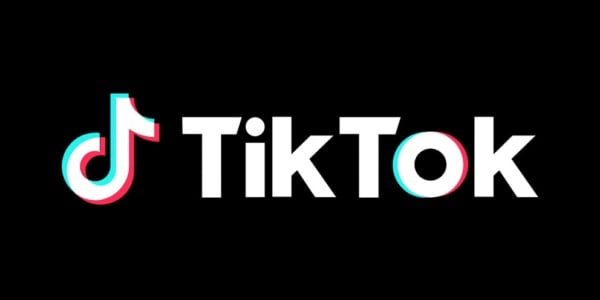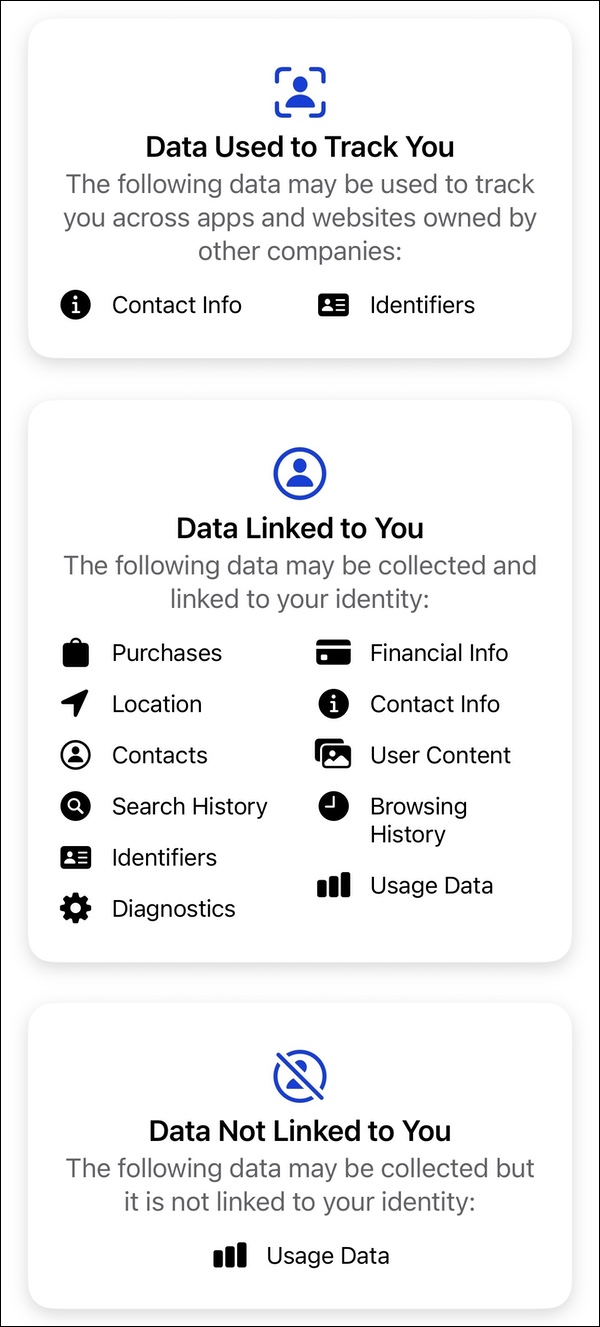Is TikTok safe, or not? Why U.S., EU, and App Store bans could be imminent
Posted on
by
Kirk McElhearn and Joshua Long

The short-form video app TikTok has become a political target for several reasons, and the United States Congress has just passed a bill stipulating that TikTok must be divested or sold within about nine months. If not, it would be banned in the United States. President Biden signed the bill on April 24, meaning that the countdown has begun.
Meanwhile, there are already existing bans in place in other countries. And some countries besides the U.S. are considering a ban. But why? Is TikTok actually dangerous? Should its users be worried about spying, or security or privacy risks? Let’s break it all down.
In this article:
- Is there precedent for banning TikTok?
- Alleged national security risks
- Censorship and content moderation issues
- Privacy concerns
- Banning TikTok exposes users to new security risks
- What else should I know?
- How can I learn more?
Is there precedent for banning TikTok?
Several countries—including but not limited to Australia, Canada, New Zealand, and the United Kingdom—have already banned TikTok on government devices. The European Commission has also banned TikTok from corporate phones.
Other countries, such as India, have banned TikTok entirely, along with other Chinese apps, for “[engaging] in activities which is prejudicial to sovereignty and integrity of India, defence of India, security of state and public order.” The EU has also indicated that it has not ruled out the possibility of a general ban on TikTok.
Meanwhile, TikTok has reportedly begun testing the waters of intentionally violating Apple’s rules—in particular the prohibition on circumventing the App Store’s official in-app purchase system. This is what got Epic Games and its popular Fortnite game banned from Apple platforms for several years. It remains to be seen whether Apple would risk public backlash by banning TikTok as a developer worldwide (or at least outside of the EU) due to violations of Apple’s store policies.
A two-way street: social media bans in China
Interestingly, TikTok as such does not actually exist in China. The equivalent app, Douyin, has strong censorship, and is more a shopping app than a social media platform. It imposes strict time limits for teenage users, and has also become a major hub for consumers complaining about products and services.
Bans based on political ideologies don’t just go in one direction, either. China itself recently banned WhatsApp, Threads, Telegram, and Signal, after “the Chinese government had found content on WhatsApp and Threads about China’s president, Xi Jinping, that was inflammatory and violated the country’s cybersecurity laws.”
Alleged national security risks
One of the main reasons for such a ban is TikTok’s alleged ties to the Chinese government. Critics argue that TikTok’s parent company, ByteDance, is required by Chinese law to share user data with the government if requested. This has raised concerns about the potential misuse of user data and the risk of spying.
In the U.S. and other countries, law enforcement or the courts have the authority to require social media companies to disclose data about specific users. The worry about TikTok is that the Chinese government may be able access any or all user data, particularly that of government officials in other countries.
In just the past week, both the UK and Germany have announced arrests of people accused of spying for China. Though these cases have no direct link to TikTok, such tensions harden the resolve for governments to limit potential Chinese access to sensitive government data.
Censorship and content moderation issues
TikTok has a history of censoring content that is critical of the Chinese government, as well as other types of content. Certain content about politics or international conflicts, posts critical of LGBTQ+ ideology, and posts created by people with certain disabilities, are just some of the types of content that have sometimes been banned.
Content moderation is also an issue with TikTok—though, to be fair, other social media platforms have many of the same problems. Researchers have found that disinformation is common on TikTok (PDF), and the company’s “poor content moderation” was found to allegedly “[fuel] the spread of hate speech and misinformation ahead of Indonesia 2024 elections.”
TikTok has “instructed moderators to suppress posts created by users deemed too ugly, poor, or disabled for the platform,” and told staff to “avoid flagging problems with Amazon accounts.” TikTok also struggles to understand the political and cultural contexts of many of the countries where it is present, leading to issues around moderation.
Scams, controversial “challenge” videos, and cyberbullying
There are lots of scam videos on the platform, and with the rise of deepfake AI tools, these will continue to flourish. These include crypto and fake money-making scams, romance scams or catfishing, direct message phishing, fake job offers, and more. Again, TikTok is not the only platform where these scams flourish, but their weak content moderation is allowing these videos to go viral much more easily than on other platforms.
Another issue related to content moderation is “challenge videos.” Some have been innocuous, such as the Ice Bucket Challenge, which was created for an ALS charity. But many so-called “challenges” are extremely dangerous to health or public safety, such as the Tide Pod Challenge, which encouraged people to eat Tide Pods detergent packages. Other “challenge” videos have reportedly involved stealing cars or illegally entering into people’s homes. TikTok’s algorithmic feed make it easy for challenge videos to spread rapidly among its vast user base, especially among younger people.
Finally, cyberbullying is a significant issue on TikTok, especially among younger users. Last year, in Australia, TikTok was the social media platform with the most complaints about cyberbullying.
Recently, the European Commission opened an investigation into TikTok “over a range of concerns, including the protection of minors and addictive design.”
Privacy concerns
TikTok collects a significant amount of user data, including location, device information, and browsing history. There are fears that the Chinese government could access this data of some of the app’s 170 million U.S. users and exploit it for surveillance or other malicious purposes.
In the App Store, the TikTok app self-reports that it uses “Contact Info” and “Identifiers” to track its users “across apps and websites owned by other companies.” Moreover, the app says that it uses a massive variety of “data [that] may be collected and linked to your identity.” The latter includes, among other things: your location, contacts, financial info, purchases, search history, browsing history, and usage data.

A history of spying and misbehavior
In the past, TikTok has allegedly spied on journalists from Forbes, BuzzFeed, and The Financial Times, who had written critical articles about the platform.
TikTok has also allegedly logged user keystrokes within “the in-app browser that pops up when someone clicks an outside link.” The researcher who discovered this, Felix Krause, said that “TikTok [records] all keyboard inputs (including passwords, credit card information, etc.) and every tap on the screen, like which buttons and links you click.” However, he pointed out that other companies do this, notably Meta’s Facebook, Instagram, and Messenger.
How does TikTok’s tracking compare to the competition?
All of this is certainly worrying, of course. But it’s worth noting that Facebook, Instagram, X (formerly Twitter), YouTube, and other social media apps also collect a lot of user data. These apps, too, allegedly violate user privacy regularly.
The difference is that their user data is managed by U.S. companies—not a foreign entity whose relations with the U.S. are currently strained.
Banning TikTok may expose users to new security risks
So, what will happen if the United States bans TikTok? Users who already have TikTok on their devices will most likely not have the app forcibly removed, unless the U.S. government compels Apple to do so.
Users might still be able to use a no-longer-updated TikTok app. They may also be able to access the site via a browser—unless the U.S. government forces ISPs to block TikTok’s domain and IP addresses. The latter would be is a draconian step to take, similar to China’s great firewall, and is unlikely to occur. In addition, it would be easy to get around such blocks by using a VPN. More likely, the U.S. government will force TikTok to disable itself (both the app and website) if it detects that it’s running within U.S. borders, or face steep fines.
The biggest problem is that if security vulnerabilities are discovered in the TikTok app, users will not be able to download app updates to protect themselves. This could make the use of TikTok increasingly dangerous over time as new vulnerabilities are discovered. Users in other countries would be protected if TikTok patches the app, but users in countries where it is banned will be stuck with running out-of-date, insecure software.
What else should I know?
It’s important to point out that TikTok does not have a monopoly on social media issues. All major social media platforms—including YouTube, Instagram, and Facebook—face the same difficulties. Some issues that make TikTok stand out are the cultural issues of being a Chinese company, and attempting to use similar policies abroad as they do on TikTok’s sister app Douyin.
If ByteDance is forced to sell off or divest itself of TikTok, or at least its U.S. user base, then these issues might still be difficult to change. And if the U.S. bans TikTok, existing users will be unprotected from security vulnerabilities in outdated versions of the app—so they may find that TikTok is even more unsafe than it is now.
One more thing: The pending TikTok ban in the U.S. could potentially get overturned by the judicial system, for example if the ban is deemed an unconstitutional violation of the First Amendment and freedom of speech. Also, former U.S. President Trump claims that, if reelected, he would reverse President Biden’s ban order—a somewhat ironic position, given that Trump attempted to ban TikTok from the U.S. four years ago.
For now, you can continue to freely use the TikTok app and site in the U.S., if you so desire.
If you have kids who use TikTok, be sure to read our parent’s guide to protecting kids on social media, including TikTok.
And if you decide you no longer want to use TikTok, you can learn how to delete your TikTok (or other social media) accounts.
How can I learn more?
We discussed the forthcoming TikTok ban on episodes 341 and 342 of the Intego Mac Podcast.
Each week on the Intego Mac Podcast, Intego’s Mac security experts discuss the latest Apple news, including security and privacy stories, and offer practical advice on getting the most out of your Apple devices. Be sure to follow the podcast to make sure you don’t miss any episodes.
You can also subscribe to our e-mail newsletter and keep an eye here on The Mac Security Blog for the latest Apple security and privacy news. And don’t forget to follow Intego on your favorite social media channels: ![]()
![]()
![]()
![]()
![]()
![]()
![]()